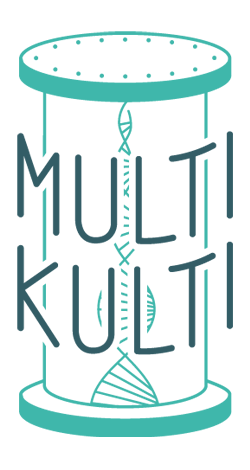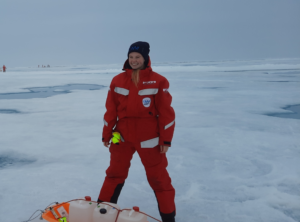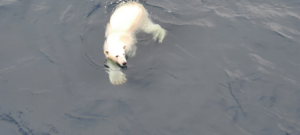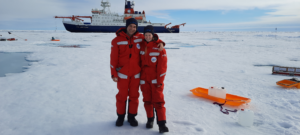On 11th of May 2023 we had the great pleasure of hearing a presentation by Ellen Oldenburg on her research on microbial communities of the Arctic ocean.
Polar microorganisms (phyto- and zooplankton, prokaryotes, viruses) are an important keystone of the Arctic ecosystem and marine species communities play an important part in climate feedback systems. Thus, understanding these relationships is vital for broader climate research objectives. Studying the Arctic ecosystem produces a wide variety of data, including images, metagenomes, and physical and chemical sensor data. The available microbiological data can be combined with such environmental information to reveal unknown interactions and effects.
The team of quantitative biologist Ellen Oldenburg, M.Sc., at the University of Düsseldorf uses various data sets to research interactions of e.g. zoo- and phytoplankton and prokaryote blooms, or between viruses and host populations. They use time series analyses with Fourier-transformed data in combination with a co-occurrence approach to study the dynamics of species and communities over time. Additionally, the results of their data analysis are useful in modelling interactions between species, including their co-occurrence, as well as mutualistic, parasitic, symbiotic and predator-prey relationships. From these data, conclusions can be drawn about the the future of microbial communities in a warmer Arctic ocean.
Our lecturer described how studying population dynamics at taxa level can show how these species are affected by environmental conditions. In her work, she combines statistics and mathematical models to display the developmental stages of zooplankton and integrates virus data into a co-occurrence network to draw conclusions about the regulatory effects of viruses. In her lecture, Ellen Oldenburg emphasized the importance of interdisciplinary and modern research for our understanding of the Arctic environment.
We offer great thanks to Ellen for her contribution to the MultiKulti webinar and for answering our numerous questions afterwards. The next webinar will take place on 9th of November 2023. Interested guests are very welcome to request the access details via email to info@multikultivierung.de



